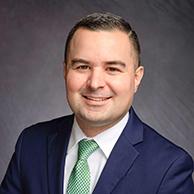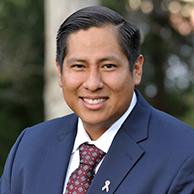 From the Advocate
From the Advocate
December 2022
Shop Small If You Love California
How California is Winning the Ground Game of Small Business Technical Assistance
Four years ago, the California Office of the Small Business Advocate launched a five-year experiment called the Small Business Technical Assistance Expansion Program (SB TAEP).
The idea was to provide grants to technical assistance providers so they could “expand” small business services, such as free or low-cost one-on-one consulting and training, especially to underserved business groups, including women, people of color, veterans and low-wealth, rural, and disaster-impacted communities. Starting with the 2018-19 budget year, the program allocated $17 million of General Fund dollars per year through 2022-23.
It’s not like we were planning for COVID-19 at the time. Nope, it’s not like we could possibly imagine that a worldwide public health and economic cataclysm was going to engulf us and spotlight both the importance of, and the vulnerability of, our small businesses in a way that had never happened before.
Looking back now, however, of course it feels prescient that the SB TAEP program was in place when COVID-19 hit and “saving our small businesses” became a top economic priority at all levels of government.
And yet our office still spends lots of time explaining “what is Technical Assistance?”
The SB TAEP Program proves the point that I’ve been making for years as a technical assistance provider myself: dollars aren’t enough. Don’t get me wrong: businesses always need access to capital! That’s why the State of California invested more than $4 billion in direct support in this budget year. But the winning formula to support a thriving small business economy is Access to Capital + Technical Assistance. They go together like Peanut Butter & Jelly…or my favorite food combo, saag paneer and naan.
But staging the recovery will take more than relief dollars. It means getting to know small business owners and their businesses intimately; it means equipping small business owners with the skills to make smart business decisions and helping them mitigate risk; it means cheerleading for their growth and telling them honestly when they’re headed in the wrong direction; it means providing the kind of tactical counsel and advice that a board of directors jam-packed with MBAs and high-profile connections provides to Fortune 500 CEOs…but without the expectation of any perks.
Sometimes it means direct intervention to unstick a situation with a lender or the permitting department or the business license clerk or a landlord or getting any number of types of people to pay attention because this business owner is the real deal!
Technical Assistance (TA) is much, much broader than helping someone fill out a loan application…although that is one incredibly important piece of the puzzle. It requires a much deeper language and cultural sensitivity than just translating a website. People like to say that TA must “meet the businesses where they’re at” and this is very true. But to accomplish that, TA counselors must understand how the business-owner navigates the world, how they feel about money, the dreams and fears that made them do this scary thing called entrepreneurship in the first place.
This is why I always refer to Technical Assistance as a ground game: you have to run the ball down the field yard by yard, not just pass it off to another player.
SB TAEP provided funding to a network of more than 80 small business centers this year, representing more than 1,000 “boots-on-the-ground” counselors who are ready to play that ground game, including providing support in some 30 languages.
Between October 2020 and September 2021, this investment supported more than 66 thousand unique clients, assisted over 1600 new business starts and 10 thousand new jobs created, and connected clients to a total of nearly $900 Million in capital including loans, grants, and private investment. All this at no cost to the business owner.
This is why, even prior to the sunsetting of the original program, the Governor has proposed to go ahead and make TAEP funding a permanent part of the Administration’s budget and added $6 million in funding every year to boot.
As the State of California reinforces its investment in the Small Business Center network and gets ready to absorb significant new small business funding from the federal government, we’ll have to adjust certain parameters of the program to make sure that “expansion” translates to “sustainability” over time. We also still have holes in the service map, for example, in the Inland Empire, the far North and the length of the Sierras. We also need to create easier cross-network access to specialty counselors, both in terms of language skills and industry knowledge. We have to make sure that there are enough counselors specialized in rental laws and employment law and industry-specific regulations and location-specific licensing and permitting and well, just so many other topics that the small business owner has to overcome on their way to their dream.
So I am not taking a victory lap here!
But I am recognizing a winning formula.
No one expects a corporate CEO to navigate California employment law, taxes and financing, product development, marketing, operations, team management and getting payroll out the door all by themself. Why do we think that small business owners are somehow supposed to know how to do all that…and with much fewer resources to pad any lapse of judgment or shortfall in execution? Venture-funded founders are counseled to learn how to “fail fast” and plan their exit strategy from Day One. But small business owners aren’t given any room to fail. Multiple bankruptcies won’t stop you from becoming President…but a single bankruptcy or even just a low credit score probably means you won’t be able to get a loan for a coffee shop.
How crazy is that? But the idea that being your own boss means going solo is so ingrained that sometimes my team’s hardest job is convincing the business owners themselves to take advantage of a resource that a) solves real problems, b) provides a deeply personalized service, and c) doesn’t cost them anything out-of-pocket.
The state must sustain a robust technical assistance ecosystem so that business owners funded through state programs are ready to make the best possible business decisions with those taxpayer dollars.
But that’s not what motivates the counselors… My team and I are fortunate to get to know individual counselors and center directors, and we know how meaningful their relationships to individual “clients” are and how personal they take that win-lose scorecard for the business-owners they coach.
So do yourselves a favor, small business owners of California – do not go it alone!
The worst time to start a relationship is when you need it. Make an appointment with a Small Business Center TODAY. Because a ground game still takes a team.



















































